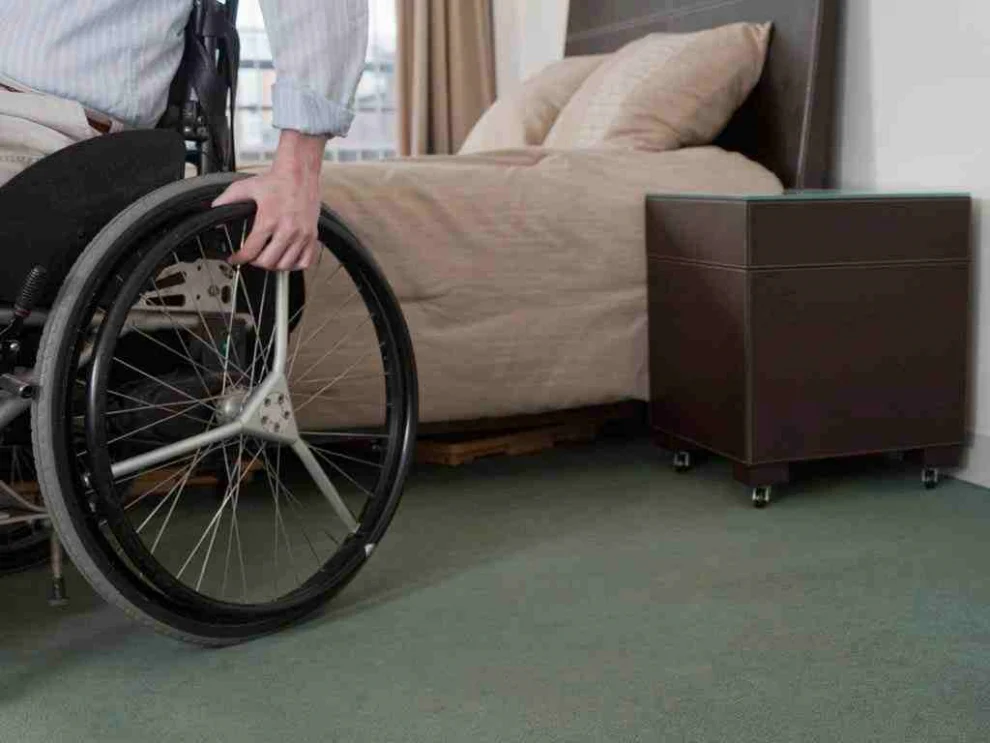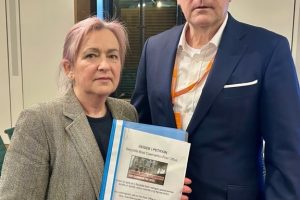 The Herald has learnt that a high profile local and televised case has led to a change of heart in how Pembrokeshire County Council applies the Government’s policy on the Spare Room Subsidy, often referred to as the‘Bedroom Tax’.
The Herald has learnt that a high profile local and televised case has led to a change of heart in how Pembrokeshire County Council applies the Government’s policy on the Spare Room Subsidy, often referred to as the‘Bedroom Tax’.
The controversial policy was at the centre of Westminster politics this week when David Cameron was challenged, during Prime Minister’s Questions, in Parliament, by Labour MP Jim Cook to justify his position for what Mr Cook saw as ‘a policy that punishes the poor’. To which, The Prime Minister responded by stating that the policy is designed to apply the same rules to both the private and public sector housing markets alike. Mr Cameron also challenged Labour to state whether they would reverse the Coalition policy or not, to which he received no response.
The Spare Room Subsidy was introduced on April 1 of this year by the UK Government. principally, because they claim there are nearly one million spare bedrooms in the UK, with an estimated cost to the tax payer of up to half a billion pounds a year. Simon Hart, MP for Carmarthen West and South Pembrokeshire told The Herald that,
“To ensure we protect those affected, we have trebled the Discretionary Housing Payment (DHP). We have allocated £25 million to support disabled people living in heavily adapted accommodation”.
In the Welsh Assembly this week, Rebecca Evans AM, and member of the Health and Social Care Committee, commented on the policy, claiming that the Labour Welsh Government were ‘making efforts to mitigate the effects of the Bedroom Tax’. In a press release dated September 3, of the UK Government, she stated that,
“Amazingly, despite admitting that the Bedroom Tax could have a disproportionate effect on rural communities, the UK Government didn’t undertake a specific rural impact assessment to fully investigate the problems it may pose. It seems they are quite comfortable with pushing forward with metropolitan policies that have a harsh effect on rural communities”
Welsh Finance Minister, Jane Hutt, visited housing developments in both Haverfordwest and Pembroke Dock and said that,
“We are determined to do all that we can to help mitigate against the UK Government welfare reforms. That’s why we’ve allocated £20 million to provide much needed one and two bedroom homes across Wales.”
However, one Pembrokeshire resident directly affected by this policy, whose story was featured on Channel 4 news this past week, does not feel the application of this tax is being applied in a fair and even handed way. Paul Rutherford, of Haverfordwest, spoke directly with The Herald to explain his experience.
“Our bungalow was purpose built and allocated to my wife and her grandson due to the profound nature of his disabilities and care requirements. It was built with various adaptations. We first became unsure if we would, in fact, be affected or not after I read the legislation in January of this year. There, it states that an exemption will be made for any household in which the claimant or the claimant’s partner requires an extra bedroom for an overnight carer who does not normally reside at the address.”
In correspondence with The Herald, Simon Hart MP re-iterated this aspect of policy.
Mr Rutherford, continued to explain that the spare bedroom for which the tax would be liable was occupied at least two to three nights a week by a non resident carer. Initially, he said that the Council had advised him to put in a claim for a Discretionary Housing Payment. After many problems with form filling and financial assessment, he went on to say that the Council had advised him that he was not eligible for a DHP and could therefore afford to pay the additional 14% of his rent. Eventually, however, he said that the Council agreed to award the DHP but informed Pembrokeshire County Council that, in fact, he was appealing against the original decision to have their housing benefit cut, as required by the Spare Room Subsidy policy. He stated that his concern was that this was merely a short term funding plan and that the real issue was that of the housing benefit cut itself. Mr Rutherford explained that he would be taking legal action saying that,
“This tax is pernicious. Of the 660,000 households said to be affected, almost two thirds contain disabled people, like us, who need the space in their homes to have carers stay overnight or for equipment storage. We will fight this all the way and we would have expected more support from Pembrokeshire County Council, but they don’t actually care.”
The Herald contacted County Councillor David Simpson, Cabinet Spokesperson for Housing, regarding Mr Rutherford’s case, who, speaking exclusively to The Herald, said,
“We will be reviewing the policy at Cabinet on Monday, which will stop him (Mr Rutherford) from having to pay.”
When asked why the County Council had not applied the discretion for disabled tenants as per Government policy, Mr Simpson said of this apparent U-turn in Council policy towards implementing the Spare Room Subsidy,
“In the original assessment it was not felt they (Mr Rutherford and his wife) were in dire need. This is the Government’s fault. It is a policy imposed upon councils and has put all councils in a very difficult position. I heard about it (Mr Rutherford’s case) and acted as quickly as I could.”
On the actual figure of those affected in Pembrokeshire, and the claim by the Labour Welsh Government that only fourteen one bedroom properties were currently available, he went on to say that,
“The County Council currently has 947 one bedroom, or smaller, properties. The fourteen figure quoted relates to the number of one bedroom, or smaller, properties available at a point in time in August – this will change over time. Since April 1st there have been a total of fifty-seven one bedroom properties that have become available. “
Paul Davies, Am for Preseli Pembrokeshire, speaking with The Herald, said of the policy,
“Welfare bills, including housing benefit, spiralled out of control under the last Labour Government, costing over £100 billion every year, paid for with the taxes of hardworking people. I am surprised that Labour politicians continue to support the reckless sort of spending which got this country into the economic mess in the first place. Most families in Wales have to pay extra in rent or mortgage payments if they want to have a guest bedroom so why should it be any different for people on housing benefit?”
This was a sentiment echoed by Simon Hart MP who said that the policy aimed to make better use of housing stock, support those in overcrowded accommodation and on waiting lists, encourage mobility within the social rented sector, and strengthen work incentives.
He finished by stating that,
“The Spare Room Subsidy is not a penalty and it is not a tax. It is a reduction in housing benefit for those who are being subsidised for spare bedrooms. This policy is founded on the principles of fairness; fairness to those in overcrowded homes, fairness to those in the private sector and fairness to the taxpayer”.















